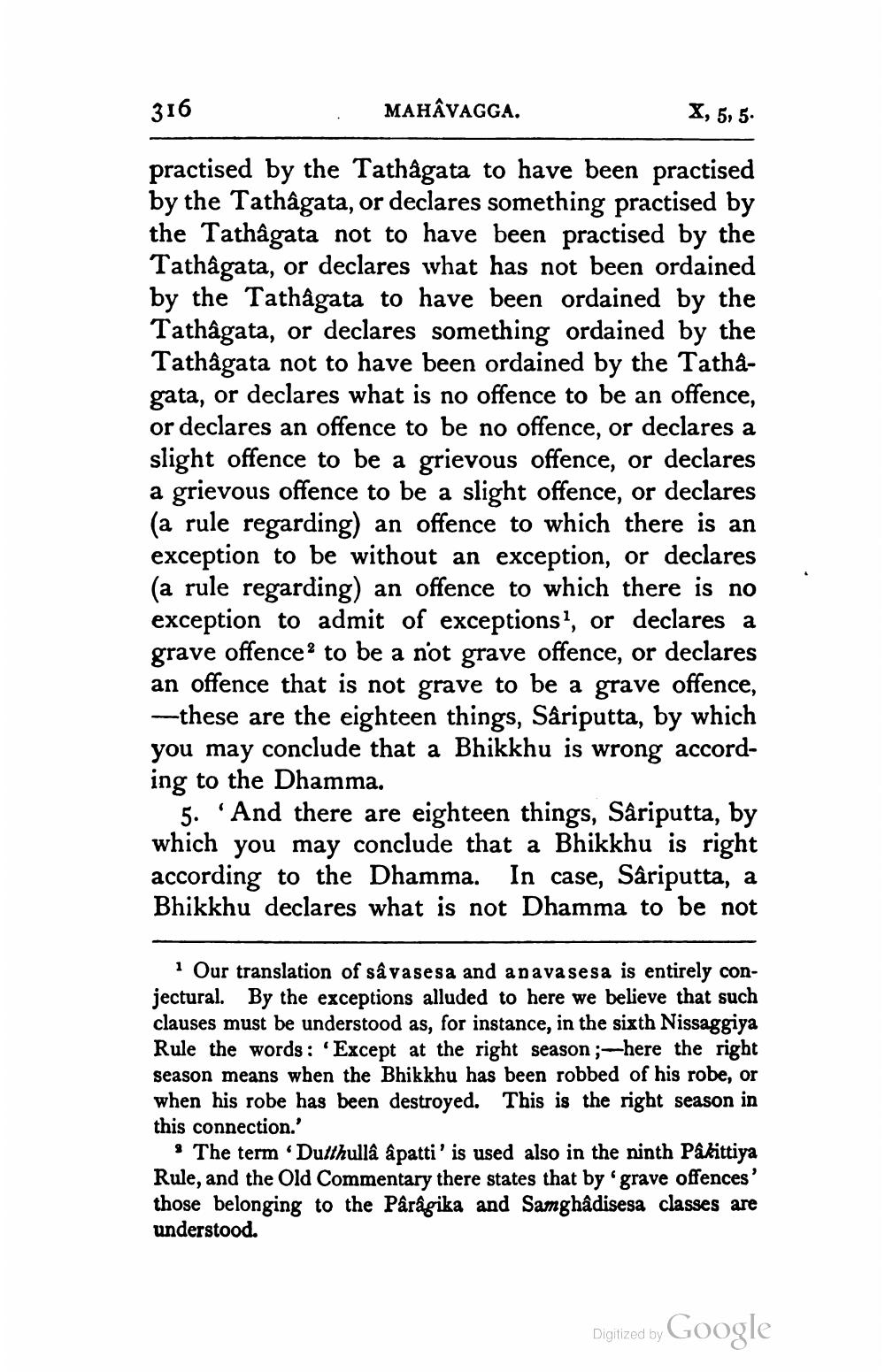________________
316
MAHÂVAGGA.
X, 5, 5.
practised by the Tathagata to have been practised by the Tathâgata, or declares something practised by the Tathagata not to have been practised by the Tathagata, or declares what has not been ordained by the Tathagata to have been ordained by the Tathagata, or declares something ordained by the Tathagata not to have been ordained by the Tathågata, or declares what is no offence to be an offence, or declares an offence to be no offence, or declares a slight offence to be a grievous offence, or declares a grievous offence to be a slight offence, or declares (a rule regarding) an offence to which there is an exception to be without an exception, or declares (a rule regarding) an offence to which there is no exception to admit of exceptions', or declares a grave offence? to be a not grave offence, or declares an offence that is not grave to be a grave offence,
-these are the eighteen things, Sâriputta, by which you may conclude that a Bhikkhu is wrong according to the Dhamma.
5. 'And there are eighteen things, Sâriputta, by which you may conclude that a Bhikkhu is right according to the Dhamma. In case, Sariputta, a Bhikkhu declares what is not Dhamma to be not
1 Our translation of sâvasesa and anava sesa is entirely conjectural. By the exceptions alluded to here we believe that such clauses must be understood as, for instance, in the sixth Nissaggiya Rule the words: Except at the right season ;-here the right season means when the Bhikkhu has been robbed of his robe, or when his robe has been destroyed. This is the right season in this connection.'
The term 'Dutthullâ âpatti' is used also in the ninth Pâkittiya Rule, and the Old Commentary there states that by grave offences' those belonging to the Pârâgika and Samghâdisesa classes are understood.
Digitized by
Digized by Google




